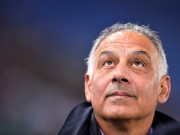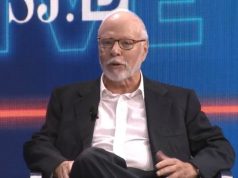Manchester United’s chief financial officer has revealed that the club fear they will miss out on signing some of Europe’s top young talent as the result of Brexit.
The UK formally began the process of leaving the European Union in March, and all negotiations and settlements are expected to be completed by the deadline of March 2019, when the UK will definitively depart the EU.
Clubs within the EU and the European Economic Area currently receive an exemption from FIFA regulations, which allows 16 and 17 year old players to be transferred within the region (clubs are not allowed to register under 18 players from outside the region, which is why Flamengo’s Vinicius Junior will only join up with Real Madrid next year when he turns 18).

However, once the UK leaves the EU, Premier League clubs will only be able to sign foreign players over the age of 18 – unless another exemption is obtained – and Cliff Baty, Manchester United’s chief financial officer, is concerned that this could result in England’s top clubs losing their competitive edge.
“There’s a practical, operational issue around Brexit with regard to bringing in players from Europe and losing competitive advantage from the likes of ourselves against Real Madrid and Barcelona,” Baty explained during a KPMG football finance forum. “We don’t have to be winning every year. But we as a club have to be challenging to win every year.
“If you have 16 year olds going to play for them and if we have to wait until 18 there are clearly practical issues there. I’m sure that will be discussed. It’s certainly something the Premier League are aware of.”
One of the other issues that Manchester United – and other English clubs – faced in the wake of the Brexit referendum last summer was the plummeting value of the pound. As the pound dropped, players feared how far this might drop and – consequently – how much less they would be earning in wages.

For example, Manchester United signed Zlatan Ibrahimovic last summer, paying him a reported £220,000 a week. After the referendum, according to Financial Times estimates, this was worth roughly 10% less against the dollar.
“It was a bit difficult last year when you’re trying to make signings in the summer and you have players questioning the value of being paid in [pounds] sterling. We’re not going to lose a signing over that. It just makes the finances a bit more complicated.
“A lot of European players want to be paid or want to have their value to be underpinned in euros. That’s understandable to a degree, but we are not a euro company. We obviously earn most of our income in sterling.”
Despite this, according to The Times, United did agree to pay a number of their players in euros, including Ibrahimovic, Paul Pogba and Henrikh Mkhitaryan. However, The Times continues, the club will not continue their policy of paying players in euros as the pound has stabilised since the referendum.






































